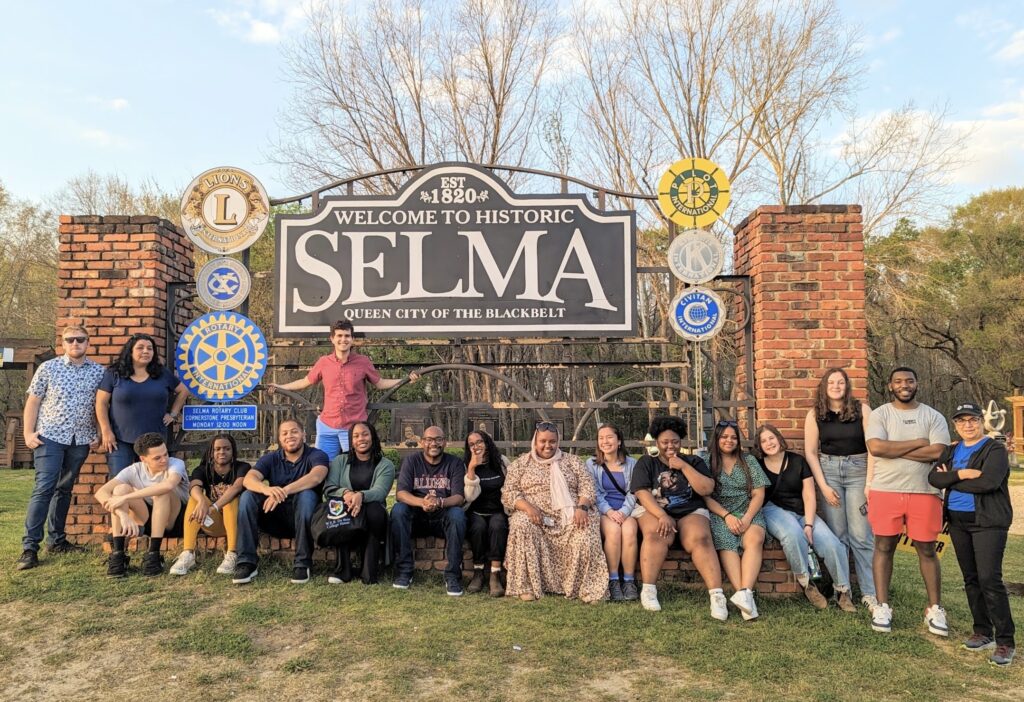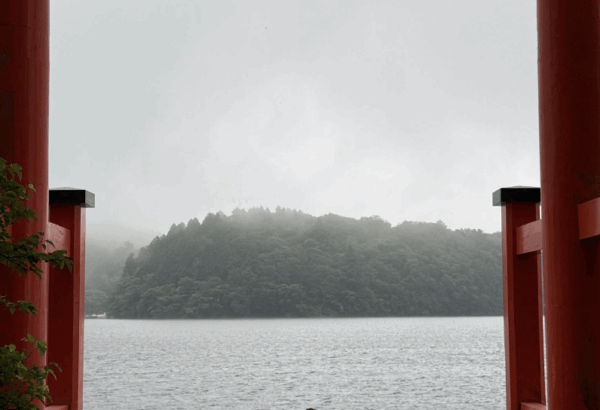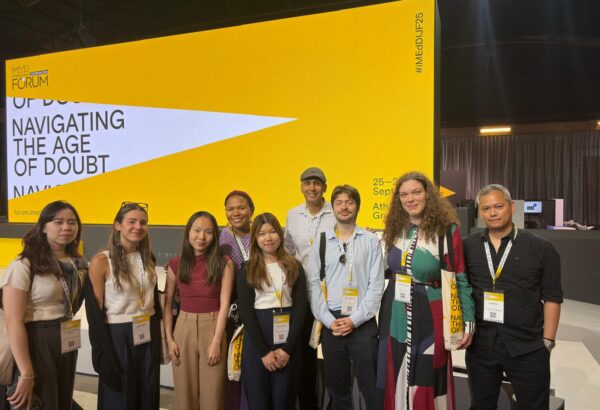The Alliance for Understanding
The Alliance for Understanding consists of a diverse group of students from Penn as well as staff from The Greenfield Intercultural Center, The African American Resource Center, and Penn Hillel. The cohort spends six weeks discussing the Civil Rights Movement and then takes a trip to the South to better understand American history for the sake of creating social change. The program provides opportunities to visit historical sites and museums and also talk to people who have invaluable knowledge from their experiences studying or living through the Civil Rights Era. The program has a special focus on how the African American and Jewish communities experienced the Civil Rights Era, providing opportunities for students to explore solidarity across racial lines for the cause of justice.
In our cohort’s trip to the South, we spent time in four cities that were integral to the Civil Rights Movement: Atlanta, Montgomery, Selma, and Birmingham. I am immensely grateful for the wisdom passed down from the activists, docents, and community members we spoke with, as their knowledge is crucial in guiding movement work today.
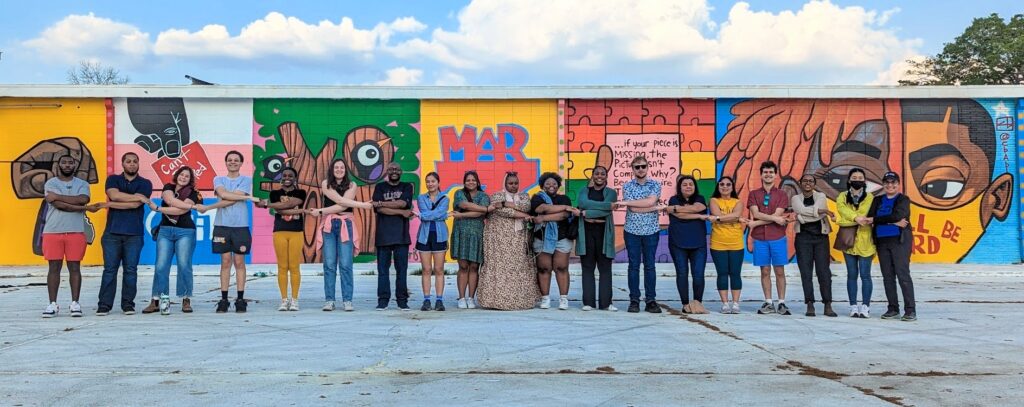
Sankofa
Sankofa is a Ghanaian word that describes the importance of looking to the past while still moving forward, drawing upon the image of a bird that can turn its head around to look behind itself while its feet stay facing ahead.
This is a powerful idea that our Alliance for Understanding Cohort explored with Brother Robb, the former director of the African American Resource Center at Penn who seeks to break cycles of trauma through better understanding the past. Sitting in the Greenfield Intercultural Center living room just a week before our trip to the South, our cohort discussed the importance of looking to the past to guide future action. Guest speakers, like Brother Robb, provided invaluable insight on how better understanding history impacts social change. The African principle of sankofa is found in doing the work to learn and understand history in a deep and purposeful way and using this understanding to meaningfully impact one’s community.
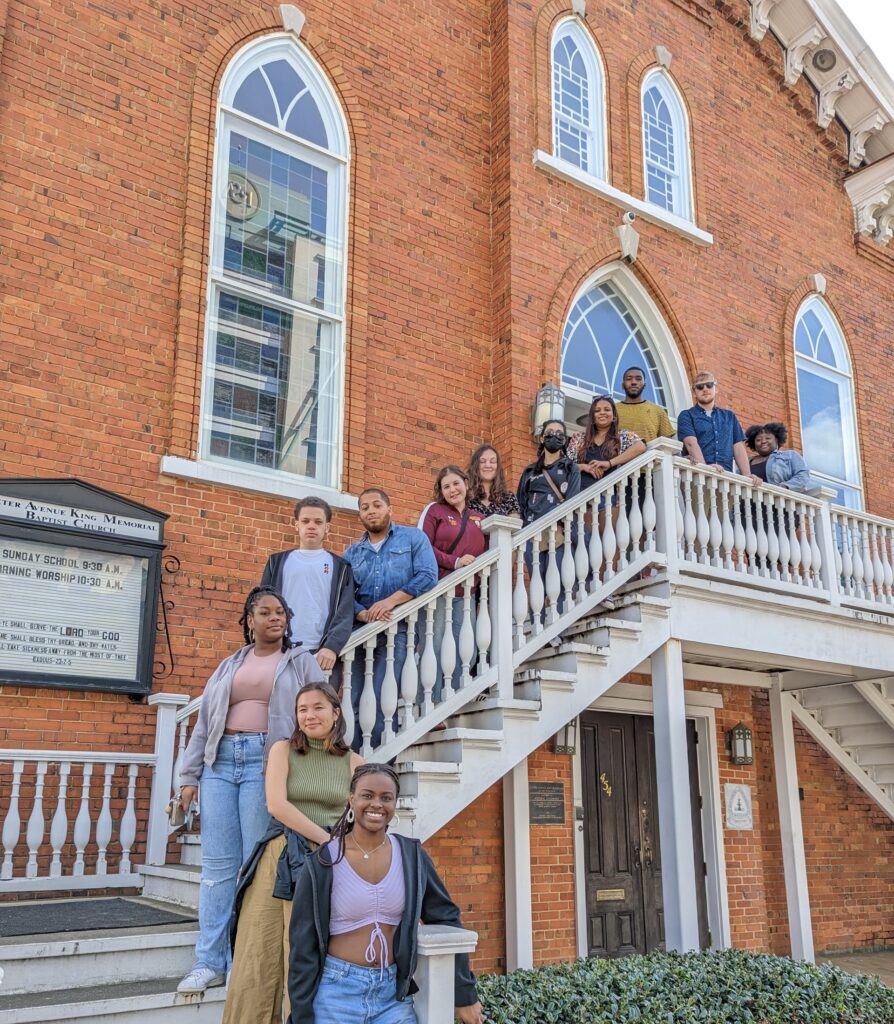
Going Down South
Valerie De Cruz, the Director of the Greenfield Intercultural Center who has run the Alliance for Understanding Program for over 20 years, emphasized the importance of “feeling history” rather than just examining it in an intellectual and theoretical way. There were many moments during the trip that deeply moved me and helped me to better understand history by way of emotion. One such moment was our cohort’s visit to the Memorial for Justice and Peace. This memorial in Montgomery, Alabama pays homage to the many lives lost to racial terror lynchings in America. Slabs of stone display name after name of innocent people who were killed by hatred and white supremacy. Another powerful experience during the trip was speaking with Ms. Lynda Blackmon Lowery, an activist who had marched on Bloody Sunday and was assaulted by the police on that day. She called on us to pursue community-centered, grassroots activism to continue to fight for justice so that others will not have to experience the trauma that she did.
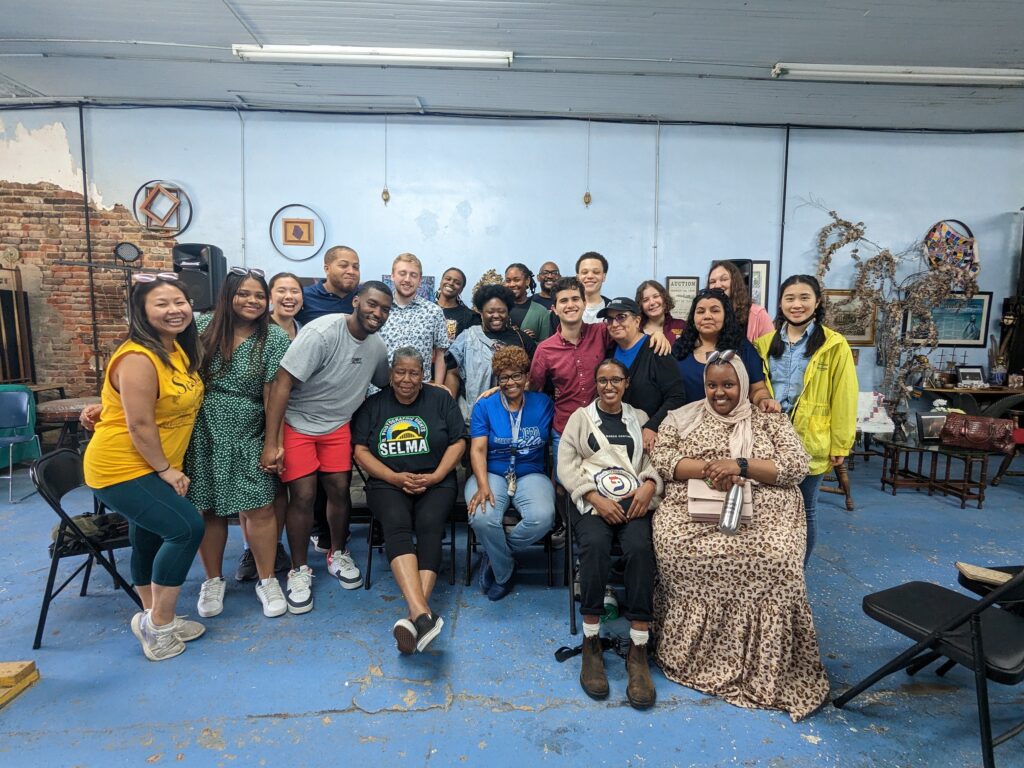
Looking Back and Moving Forward
America has a history of racial oppression that can be extremely uncomfortable to confront, but it is necessary to reckon with this history so that reparations can be paid.
Activists like Ms. Lynda Blackmon Lowery called on us “young people” to take hold of the baton with them and eventually carry it ourselves when they are gone, continuing the fight against injustice. There is still so much work to be done: schools and neighborhoods are largely segregated, poverty disproportionately affects marginalized communities, Black and Brown Americans are terrorized by the police and the carceral state, and hate crimes continue to plague the country. This list does not even begin to cover the entirety of problems America has today that are shaped by its history of racial oppression.
The Alliance for Understanding taught me a lot about the communication of history as a form of dialogue. The museums and sites we visited each shared their own narrative and offered a unique perspective.
The individuals we talked to similarly had their own understandings of the Civil Rights Movement, shaped by their backgrounds and experiences. Piecing all of this together made me appreciate learning about history in a nuanced way in order to better understand it.
We heard about the big names in the Civil Rights Movement from countless museums and also learned about the “foot soldiers” who fueled the movement from community activists like Ms. Lynda Blackmon Lowery. At the various synagogues we visited, we learned about Jewish action and inaction across America during the Civil Rights Era and the antisemitism that influenced many Jews in conforming to the dominant culture of the South. We visited many museums that made it their mission to share the history of the Civil Rights Movement and the struggles that Black Americans face to this day. However, we also stumbled upon a gift shop in the Alabama State Capitol building that sold cotton ornaments, confederate flag trinkets, and children’s books about the Civil Rights Movement that sugar-coated America’s history of racism and systemic oppression and painted these issues as things of the past that do not affect the present. These ways of portraying history complicate historical narratives and also at times try to deny parts of history that challenge American exceptionalism. By better understanding these ways of communicating history, I hope to recognize where we have come from and how this shapes what progress in America should look like. I also want to explore how to have difficult conversations about history in a country where some people are afraid of challenging dominant narratives and beliefs.
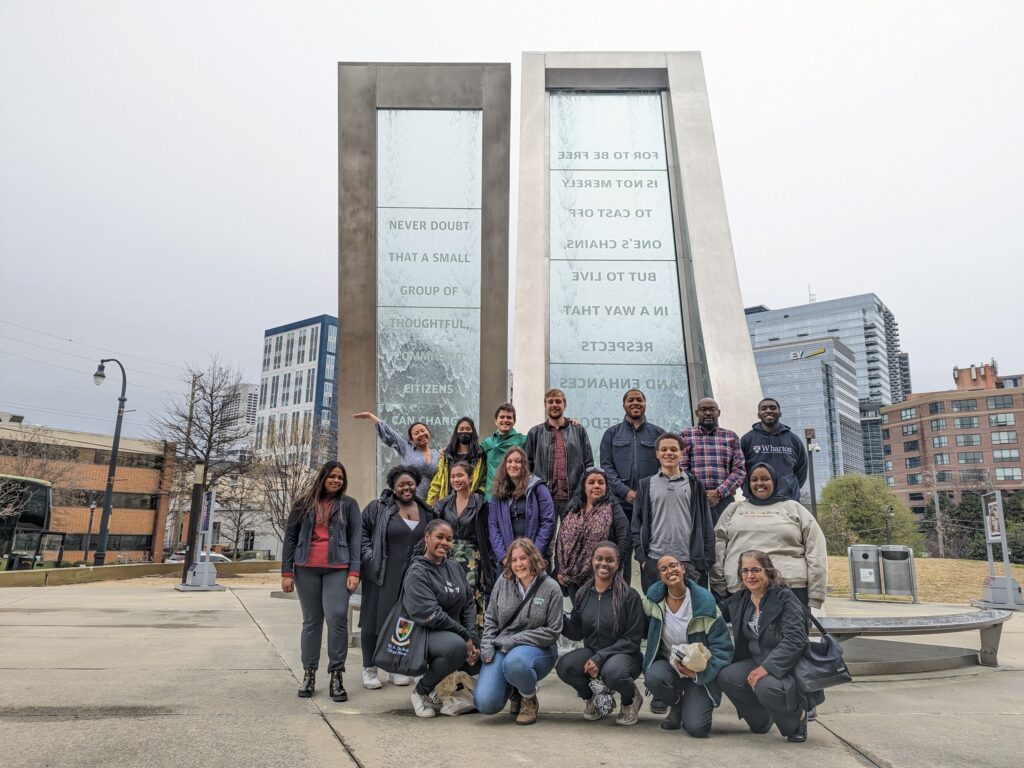
I find hope in the work that has been done, a path paved by activists who have dedicated so much of their time and energy to fight for equality. I find hope in the staff who helped lead this program who have dedicated their careers to striving for racial justice. I find hope in my cohort – a group of young people who are committed to learning about history in a meaningful way in order to be effective agents of change in their communities.
I still have so much to learn about American history, but am eager to learn more and continue looking to the past as a guide for how to fulfill the American promise of a nation that upholds “liberty and justice for all.”
